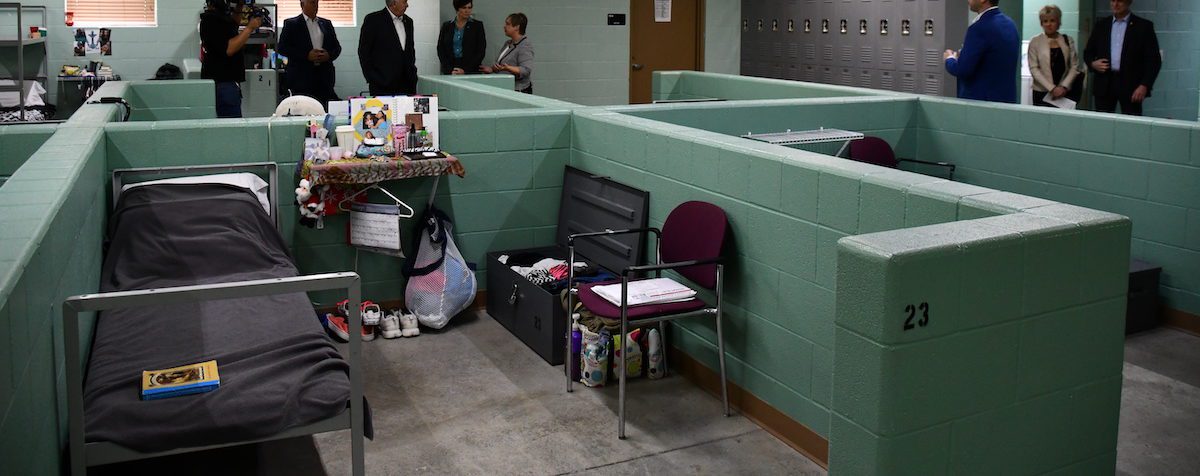
Apply Now: Community of Practice on Community Supervision Strategies for People with Serious Mental Illnesses and Co-occurring Substance Use Disorders
********This application deadline has passed********
The Council of State Governments (CSG) Justice Center is hosting a virtual Community of Practice focused on supporting counties in reducing recidivism among people on community supervision who have behavioral health needs. The Community of Practice will be led by CSG Justice Center policy and research staff, with featured presentations from research experts and peer counties. Participants will have opportunities for mutual learning and dialogue.
Upon completion of the Community of Practice, participants will be equipped with strategies they can use in their own communities to
1. Enhance how people are matched to services based on their risk and needs and create quality assurance mechanisms to review fidelity and effectiveness;
2. Develop processes, policies, and practices that create or enhance supervision strategies that prioritize tailored intervention and crisis aversion, such as collaborative case management, specialized caseloads, and violence risk assessment;
3. Strengthen efforts to connect people to housing; and
4. Create tools that increase response options for technical violations, including substance use.
These sessions are supported with funds from the Justice and Mental Health Collaboration Program via the U.S. Department of Justice’s Bureau of Justice Assistance (BJA).
- June 15, 2021
- August 3, 2021
- September 21, 2021
- November 9, 2021
All sessions will take place 2:00–3:30 p.m. ET.
Which counties should apply?
This Community of Practice is targeted toward counties that are interested in advancing and modifying community supervision using promising or evidence-based practices that improve outcomes for people on community supervision. Jurisdictions that do not have a current BJA Justice and Mental Health Collaboration Program grant award will be prioritized for this opportunity.
Who should participate?
Ten to twelve jurisdictions will be selected for inclusion in the Community of Practice. Teams should comprise a probation official and a behavioral health specialist; the participation of a prosecutor, substance use provider, and/or a judge is also encouraged. Six team members at most may actively participate in each session; however, additional team members may join to listen in. Participating counties will coordinate with the CSG Justice Center to determine the appropriate combination of attendees for each session.
What will the sessions cover?
Session 1. Back to Basics: Effective Case Management
This session will cover critical topics, such as matching supervision levels and interventions to risk and needs, quality assurance, and evidence-based practices, which lay the foundation for effective case management. While these approaches are not new, participants will gain a deeper understanding of their importance and how to apply them in practice. Specifically, participants will learn how to strengthen quality assurance, including by using a programmatic quality assurance matrix that helps measure what’s working and what can be improved to continue supporting people’s ability to successfully complete community supervision.
Session 2. Tools of the Trade: Specialized Caseloads, Embedded Clinicians, Gauging Violence
This session will include a presentation and discussion of approaches such as specialized caseloads, collaborative case plans, and gun violence prevention. Within these approaches, the session will highlight topics including training, culture and goal alignment, collaboration, connections to care, and data. By employing these approaches, participants will be able to create or advance specialized caseloads in their county.
Session 3. Facilitating Stability: Developing Resources and Strategies for People on Community Supervision Who Are Unhoused
This session will explore evidence-based practices to address homelessness and help ensure successful connections to housing. Participants will gain insight into applying specific housing interventions, finding the right housing partnerships, and aligning processes for pre-release assessments and subsequent referrals. Participants will emerge from this session well positioned to partner with local housing providers to help people obtain safe and affordable housing.
Session 4. Getting it Right: Implementation Science, Graduated Responses, and Technical Violations
This session will provide an overview of essential topics that support reducing technical violations through implementation fidelity, racial equity strategies, structured decision-making tools, and effective responses to substance use disorder and non-compliance. In this session, participants will gain critical tools for probation officers that allow them to better match responses to risk and needs when violations occur.
The sharp rise in school shootings over the past 25 years has led school officials across the U.S.…
Read MoreA three-digit crisis line, 988, launched two years ago to supplement—not necessarily replace—911. Calling 988 simplifies access to…
Read MoreIt would hardly be controversial to expect an ambulance to arrive if someone called 911 for a physical…
Read More Taking the HEAT Out of Campus Crises: A Proactive Approach to College Safety
Taking the HEAT Out of Campus Crises: A Proactive Approach to College Safety
The sharp rise in school shootings over the past 25 years has led school officials across the U.S. to take a closer look at ways to keep students safe. For Chaffey College in Rancho Cucamonga, California, a tragic incident at a nearby university hit close to home and spurred campus leaders to revisit their own school’s threat assessments and crisis responses.
Read More From 911 to 988: Salt Lake City’s Innovative Dispatch Diversion Program Gives More Crisis Options
From 911 to 988: Salt Lake City’s Innovative Dispatch Diversion Program Gives More Crisis Options
A three-digit crisis line, 988, launched two years ago to supplement—not necessarily replace—911. Calling 988 simplifies access to services when people are seeking help for themselves or loved ones with suicidal thoughts, behavioral health concerns, or substance use-related crises.
Read More Matching Care to Need: 5 Facts on How to Improve Behavioral Health Crisis Response
Matching Care to Need: 5 Facts on How to Improve Behavioral Health Crisis Response
It would hardly be controversial to expect an ambulance to arrive if someone called 911 for a physical health emergency. And yet, for years, the default responders for a behavioral health emergency have been law enforcement officers, not behavioral health professionals.
Read More









